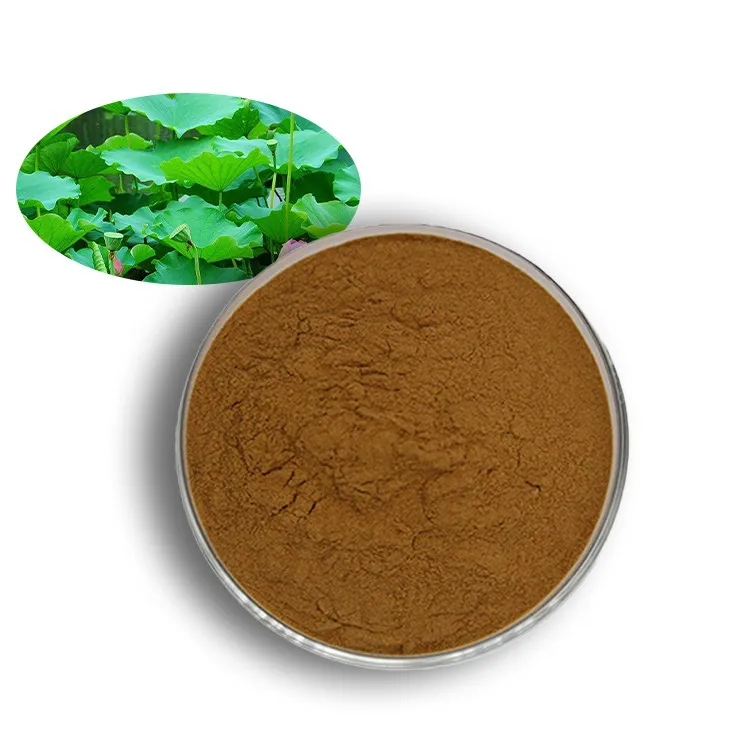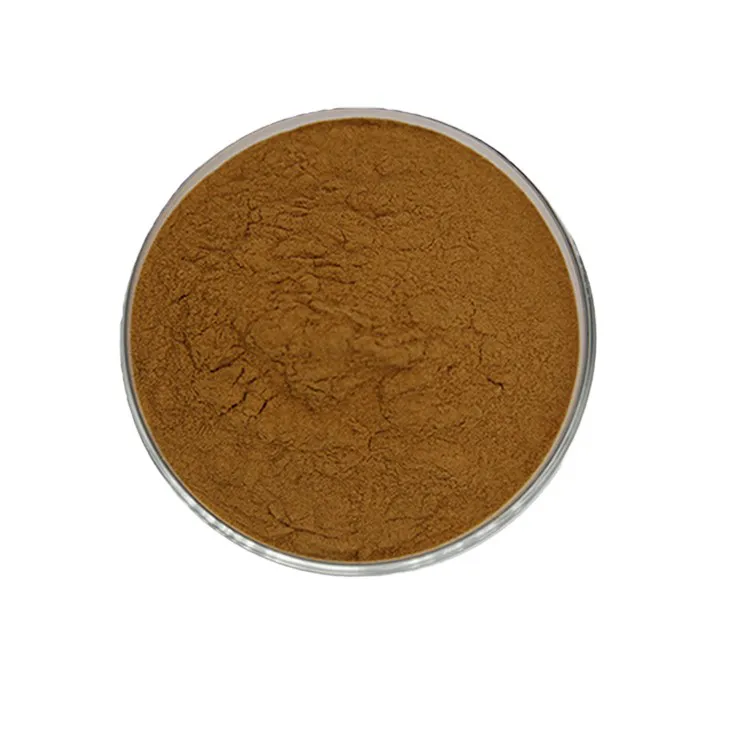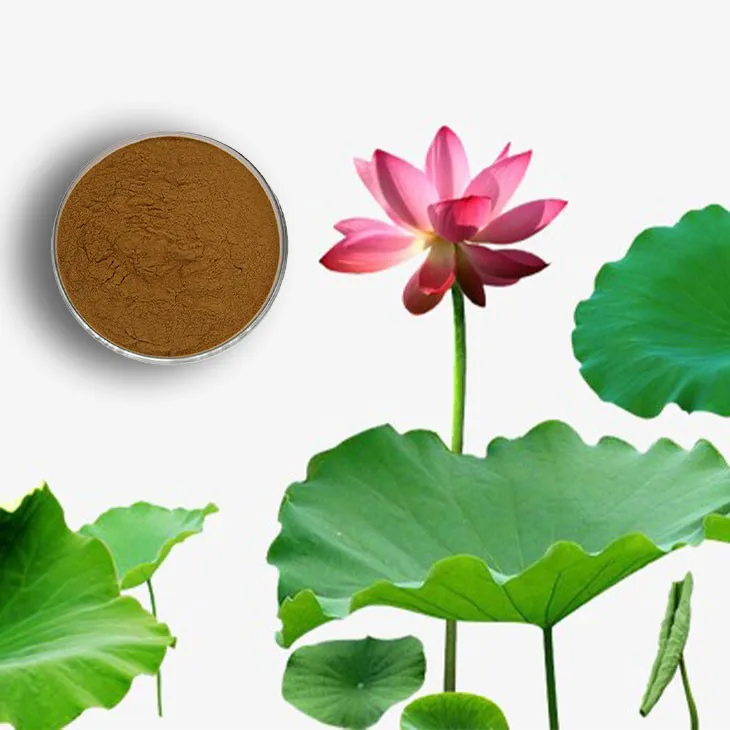- 0086-571-85302990
- sales@greenskybio.com
Trinidad and Tobago lotus leaf extract.
2024-12-12

1. Introduction
Trinidad and Tobago, a nation known for its diverse ecosystem, is home to the lotus plant. The Lotus leaf extract from this region is emerging as a remarkable natural resource. Its significance spans across cultural, traditional, and scientific realms. The unique geographical location and climate of Trinidad and Tobago provide an ideal environment for the growth of lotus plants, which in turn yield a high - quality extract.

2. Cultural Significance
In the local traditions of Trinidad and Tobago, the lotus holds a special place. It has long been regarded as a symbol of purity. This perception has been deeply ingrained in the cultural fabric of the society. The lotus has been an integral part of various cultural ceremonies and practices. Moreover, it has been used in some traditional herbal remedies. These remedies, passed down through generations, showcase the historical importance of the lotus in the local healthcare system.

3. Scientific Composition
From a scientific perspective, the Lotus leaf extract from Trinidad and Tobago is a treasure trove of bioactive compounds. It is particularly rich in flavonoids and other phenolic compounds.
3.1 Flavonoids
Flavonoids are a class of plant secondary metabolites with diverse biological activities. In the Lotus leaf extract, they play a crucial role in contributing to the potential health benefits. These compounds are known for their antioxidant properties. They can scavenge free radicals in the body, which are often associated with various diseases and aging processes. By neutralizing these harmful molecules, flavonoids help to maintain the integrity of cells and tissues.
3.2 Phenolic Compounds
Phenolic compounds in the lotus leaf extract also contribute to its overall functionality. They have been shown to possess anti - inflammatory properties. Inflammation is a common underlying factor in many chronic diseases, such as arthritis, cardiovascular diseases, and certain cancers. The presence of phenolic compounds in the extract may help to modulate the body's inflammatory response, reducing the risk of these diseases.

4. Health - Promoting Effects
The bioactive compounds present in Trinidad and Tobago's lotus leaf extract are associated with several significant health - promoting effects.
4.1 Cardiovascular Health
One of the most notable benefits is its potential impact on cardiovascular health. The flavonoids and phenolic compounds in the extract may improve blood vessel function. They can help to relax the smooth muscles in the blood vessels, allowing for better blood flow. This, in turn, can reduce the risk of hypertension, a major risk factor for heart diseases. Additionally, the extract may also contribute to reducing cholesterol levels. High cholesterol is another key factor in the development of cardiovascular problems. By influencing lipid metabolism, the lotus leaf extract may help to keep cholesterol levels in check.
4.2 Antioxidant Defense
As mentioned earlier, the flavonoids in the extract act as powerful antioxidants. This antioxidant defense system is crucial for the body. It protects cells from oxidative damage caused by free radicals. Oxidative stress has been linked to a wide range of diseases, including neurodegenerative disorders like Alzheimer's and Parkinson's diseases. By enhancing the body's antioxidant capacity, the lotus leaf extract may play a role in preventing or delaying the onset of these diseases.
4.3 Anti - Inflammatory Action
The phenolic compounds in the extract contribute to its anti - inflammatory action. Chronic inflammation can lead to tissue damage and the development of various diseases. By reducing inflammation, the lotus leaf extract may have a positive impact on conditions such as inflammatory bowel disease, asthma, and skin inflammations.

5. Applications in the Food Industry
The lotus leaf extract from Trinidad and Tobago also has potential applications in the food industry.
5.1 Natural Flavor Enhancer
It could be used as a natural flavor enhancer. The unique flavor profile of the extract can add a pleasant and distinct taste to food products. This can be particularly appealing in the development of gourmet or specialty foods. Unlike artificial flavor enhancers, the lotus leaf extract offers a natural and potentially healthier alternative.
5.2 Functional Ingredient in Functional Foods
As a functional ingredient in functional foods, the lotus leaf extract can bring added value. Functional foods are those that offer health benefits beyond basic nutrition. Incorporating the lotus leaf extract into products such as health bars, smoothies, or dietary supplements can enhance their appeal to health - conscious consumers. The bioactive compounds in the extract can provide the promised health benefits, making these products more than just a source of energy or nutrition.
6. Future Prospects
With the growing interest in natural products and their potential health benefits, Trinidad and Tobago's lotus leaf extract holds great promise for the future.
6.1 Research and Development
Further research and development is needed to fully understand the potential of the lotus leaf extract. Scientists need to explore more about its chemical composition, the mechanisms behind its health - promoting effects, and its safety profile. This research can pave the way for the development of new products based on the extract. It can also help in optimizing the extraction methods to obtain a more pure and potent extract.
6.2 Industrial Collaboration
There is a need for industrial collaboration to bring the benefits of the lotus leaf extract to a wider market. Collaboration between local producers, food and pharmaceutical industries, and research institutions can help in scaling up production, ensuring quality control, and promoting the use of the extract in various products. This can also lead to the creation of new jobs and economic growth in Trinidad and Tobago.
6.3 Global Market Potential
The global market for natural products is expanding rapidly. Trinidad and Tobago's lotus leaf extract has the potential to enter this global market. With its unique properties and potential health benefits, it can attract consumers around the world. However, to succeed in the global market, issues such as international regulations, marketing strategies, and product standardization need to be addressed.
7. Conclusion
In conclusion, Trinidad and Tobago's lotus leaf extract is a promising natural resource with significant cultural, scientific, and economic potential. Its rich cultural heritage, combined with its scientific composition and potential health - promoting effects, make it a valuable asset. The applications in the food industry and the prospects for further development in multiple industries indicate that with the right strategies and investment, this extract could make important contributions to human well - being both locally and globally.
FAQ:
What are the main components in Trinidad and Tobago's lotus leaf extract?
The main components in Trinidad and Tobago's lotus leaf extract are flavonoids and other phenolic compounds. These substances are associated with various health - promoting effects.
What is the cultural significance of the lotus in Trinidad and Tobago?
In Trinidad and Tobago, the lotus has been regarded as a symbol of purity in local traditions and has been used in some herbal remedies.
How can Trinidad and Tobago's lotus leaf extract contribute to cardiovascular health?
Trinidad and Tobago's lotus leaf extract may enhance cardiovascular health by improving blood vessel function and reducing cholesterol levels due to its flavonoids and phenolic compounds.
What are the potential applications of the lotus leaf extract in the food industry?
The lotus leaf extract could be used as a natural flavor enhancer or a functional ingredient in functional foods in the food industry.
What are the prospects for the development of Trinidad and Tobago's lotus leaf extract?
With further research and development, Trinidad and Tobago's lotus leaf extract could make significant contributions to multiple industries and human well - being.
Related literature
- The Bioactive Compounds in Lotus Leaves: A Review"
- "Lotus Leaf Extract: Traditional Uses and Modern Applications"
- "The Potential of Tropical Plant Extracts in Health and Food Industries"
- ▶ Hesperidin
- ▶ citrus bioflavonoids
- ▶ plant extract
- ▶ lycopene
- ▶ Diosmin
- ▶ Grape seed extract
- ▶ Sea buckthorn Juice Powder
- ▶ Beetroot powder
- ▶ Hops Extract
- ▶ Artichoke Extract
- ▶ Reishi mushroom extract
- ▶ Astaxanthin
- ▶ Green Tea Extract
- ▶ Curcumin Extract
- ▶ Horse Chestnut Extract
- ▶ Other Problems
- ▶ Boswellia Serrata Extract
- ▶ Resveratrol Extract
- ▶ Marigold Extract
- ▶ Grape Leaf Extract
- ▶ blog3
- ▶ blog4
- ▶ blog5
-
Pure 85% Tomentil Extract.
2024-12-12
-
Licorice Root Extract Powder
2024-12-12
-
Dandelion Root Extract
2024-12-12
-
Ginger Extract
2024-12-12
-
Saw Palmetto Extract
2024-12-12
-
Buckthorn bark extract
2024-12-12
-
Shikonin
2024-12-12
-
Purple Sweet Potato Extract
2024-12-12
-
Tongkat Ali Extract
2024-12-12
-
Medicinal Marshmallow Extract
2024-12-12
-
Berberis aristata Extract
2024-12-12





















